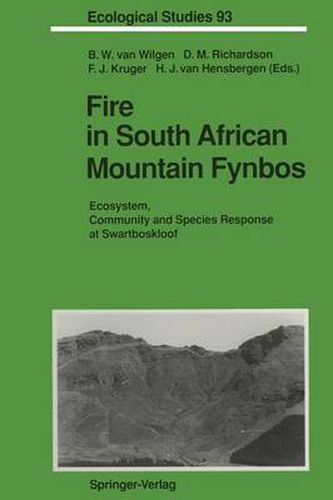Readings Newsletter
Become a Readings Member to make your shopping experience even easier.
Sign in or sign up for free!
You’re not far away from qualifying for FREE standard shipping within Australia
You’ve qualified for FREE standard shipping within Australia
The cart is loading…






This title is printed to order. This book may have been self-published. If so, we cannot guarantee the quality of the content. In the main most books will have gone through the editing process however some may not. We therefore suggest that you be aware of this before ordering this book. If in doubt check either the author or publisher’s details as we are unable to accept any returns unless they are faulty. Please contact us if you have any questions.
Ecologists are increasingly being drawn into the task of addressing problems of environmental degradation. They are expected to find solutions that will lead to sustainable resource use throughout the world. In doing so, the robustness of the science becomes increasingly important, and the problem of extrapolating the results of research conducted within what is usually a relatively limited geographical scope is increasingly highlighted. One approach to developing a globally robust ecology involves more or less formal intercontinental comparative studies, usually focused on the question of ecological convergence. These studies are directed at testing the prediction that similar physical and other environmental factors in different parts of the world, through their selective influences, will give rise to ecosystems which share com mon structural and functional features. Should this be true, the predictive power of ecology developed within such a framework should be sufficient to solve similar problems elsewhere in such biomes. There is a long history of such an approach in mediterranean type ecosystems, documented in a series of volumes and their accompanying scientific papers beginning with that of Di Castri and Mooney (1973).
$9.00 standard shipping within Australia
FREE standard shipping within Australia for orders over $100.00
Express & International shipping calculated at checkout
This title is printed to order. This book may have been self-published. If so, we cannot guarantee the quality of the content. In the main most books will have gone through the editing process however some may not. We therefore suggest that you be aware of this before ordering this book. If in doubt check either the author or publisher’s details as we are unable to accept any returns unless they are faulty. Please contact us if you have any questions.
Ecologists are increasingly being drawn into the task of addressing problems of environmental degradation. They are expected to find solutions that will lead to sustainable resource use throughout the world. In doing so, the robustness of the science becomes increasingly important, and the problem of extrapolating the results of research conducted within what is usually a relatively limited geographical scope is increasingly highlighted. One approach to developing a globally robust ecology involves more or less formal intercontinental comparative studies, usually focused on the question of ecological convergence. These studies are directed at testing the prediction that similar physical and other environmental factors in different parts of the world, through their selective influences, will give rise to ecosystems which share com mon structural and functional features. Should this be true, the predictive power of ecology developed within such a framework should be sufficient to solve similar problems elsewhere in such biomes. There is a long history of such an approach in mediterranean type ecosystems, documented in a series of volumes and their accompanying scientific papers beginning with that of Di Castri and Mooney (1973).